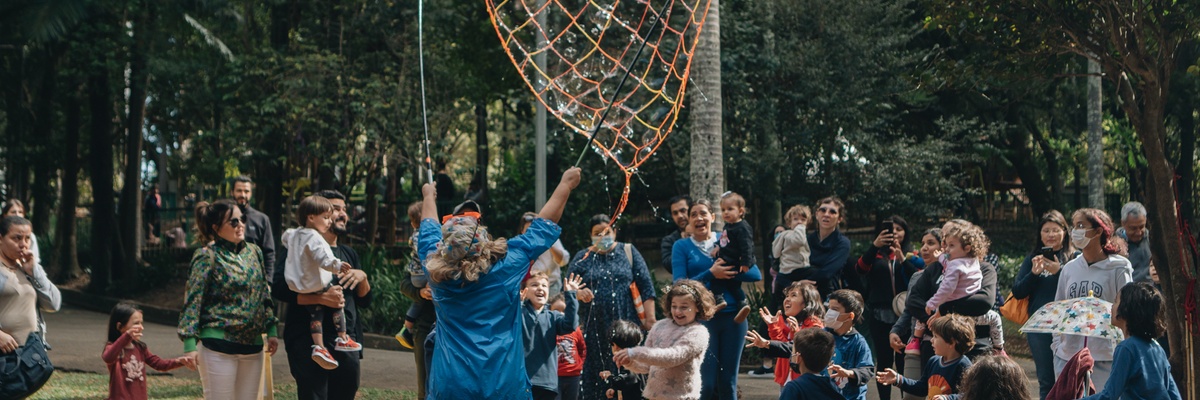
"Let's transform a public space through play?" - Fernanda Tosta - Designer, Carpenter, Educator and one of the creators of the Play Action Box

You will need to dedicate half a day a week, for 3 to 5 weeks, to get the project up and running in your community.
1. Define a location to be activated by the game and invite your community!
Choose a public space that is underused in your neighborhood - a park, a square, or even a round-about! Start inviting your neighbors, and if there is a school or community center nearby, be sure to contact them, because they can be important allies.
2. Read this guide carefully and define which materials you will choose to make your Play Action Box:
By reading the guide available in the resources section, try to understand all the categories that make up the Play Action Box and the importance of each one. Next, convene some members of the neighborhood for a workshop, where you will decide what the contents of each of the seven categories of your Play Action Box will be.
In this workshop, start by talking about what play is for each person. Then brainstorm - what are all the things that could be bought, or made, for each of the 7 categories in the Play Action Box? Next, it's time to choose what to actually buy or make! For these decisions, keep in mind the budget available, the materials that are available in your vicinity, and look for the solutions that generate the least waste! Don't forget to think about the box in which you will store all the materials!
Print out the sample checklist and fill it out with the elements that will make up your play box.
3. Buy (or build!) all the materials that will make up the box:
Use your available budget to buy the materials, and collect donations around the neighborhood to supplement the play possibilities! You can also turn this into a series of toy-building workshops! Don't forget to have a good mix of traditional and already recognizable toys, and more free materials that can have different uses and stimulate unplanned play and children's imagination. As we want to transform entire squares into play spaces, think about large elements that have visual impact, so that from afar people's curiosity is already activated, and preferably for materials that are abundant in the community. Don't forget to make sure that all the elements fit in the box (or boxes), which you have bought or built, and that it is easy to transport. Also take into consideration where that box will be stored.
4. Invite everyone to the launch day of the Play Box!
Set an opening date for the Play Action Box and invite everyone! We usually distribute stickers with the symbols of the Play Action Box to invite the children. We recommend calling on a few people to act as monitors, promoting different games and encouraging the children to interact with the different toys and materials.
For the day, it is important that one person is responsible for putting everything neatly back in the boxes at the end of the play - as a way of organizing, they can use the checklist that you produced at the end of the workshop.
Remember to share all your exciting activity with us on social media, we'd love to see how you adapt and adopt this idea!
Tag us on:
5. Keep playing!
Meet with your team after the first experience with the Box and discuss what worked, what can be improved, and decide on what new materials to buy. Make a schedule for using the Play Action Box- frequent activation helps create a culture of use and a collective awareness about the importance of caring for the materials. And then, keep playing. Will any of the children volunteer to organize one of the play days?